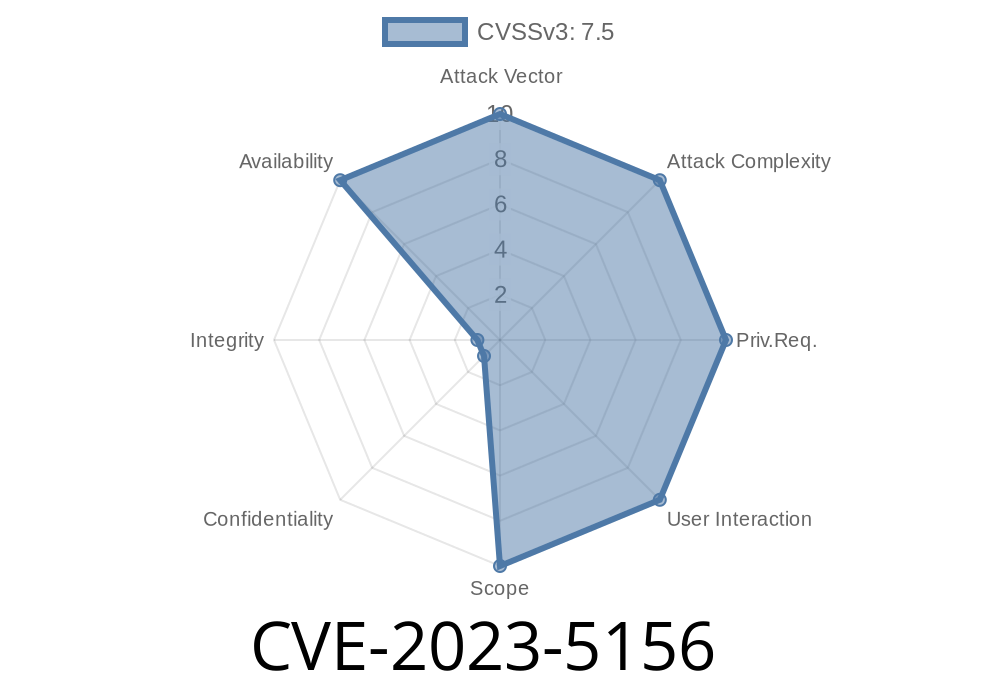In September 2023, the hunt for security weaknesses in widely-used software libraries took a new turn when researchers discovered CVE-2023-5156. This vulnerability pivots around GNU's C Library (glibc), one of the foundational bricks of Linux and UNIX-like operating systems. You'll find glibc not just on desktops, but also on servers, embedded platforms, and almost any device running Linux.
This long-read will break down the basics of this flaw, how it happened as a result of a previous fix, and even show you how the memory leak can be triggered. We'll keep things clear and practical, even if you've never hacked glibc before.
What is CVE-2023-5156?
CVE-2023-5156 is a memory leak introduced as a *regression* after the patch for a previous issue: CVE-2023-4806. While patching CVE-2023-4806, glibc maintainers accidentally left a code path where memory gets allocated but is never freed—effectively leaking memory every time the code runs. In corner cases, too many leaked memory chunks could lead to application crashes or even denial of service.
What’s a Memory Leak?
A memory leak happens when a program allocates memory but fails to give it back after it's done using it. Over time, these leaks pile up, slowing down or even crashing your program.
Who is at Risk?
This bug mostly affects anyone using recent versions of glibc that have patched CVE-2023-4806, typically included in Linux distributions released after this fix. If your apps rely heavily on functions touched by this patch, you're exposed.
The vulnerability was posted to the Red Hat Bugzilla and patched rapidly after discovery. You can read more in these original references:
- Red Hat Bugzilla: 2240592
- Mitre CVE Entry
- Upstream Commit Fixing the Leak
Technical Breakdown
The problem roots in the __vsnprintf_internal function, which is used by many string formatting functions like snprintf(), vsnprintf(), and friends. The issue comes from a missing free() call due to a misplaced or omitted logic branch.
Simplified Vulnerable Code
char *buf = malloc(size);
if (!buf) return -1;
// Do something that might early return in some cases...
if (some_condition) {
// Oops! We forgot to free(buf)
return -1;
}
free(buf);
return ;
Here, if some_condition is true, the function exits without freeing memory, causing a leak.
PoC: Triggering the Vulnerability
To demonstrate, here's a minimal example using C. This doesn't exploit the vulnerability in the wild, but shows how forced repeated string formatting with unusual formatting arguments might leak memory in affected glibc versions.
#include <stdio.h>
#include <string.h>
int main() {
char buffer[256];
// This loop simulates abusive calls that, in vulnerable glibc, leaks memory each time
for (int i = ; i < 100000; i++) {
snprintf(buffer, sizeof(buffer), "%010000s", "test"); // Large width triggers the code path
}
puts("Done. Did we crash?");
return ;
}
How it works:
Each call leaks some memory—eventually, your process can crash or get killed by the OS.
You can watch memory usage spike with top or htop.
Exploitability & Impact
While this is "just" a memory leak, not a direct remote code execution, it is a *denial of service vector*. An attacker could trigger the leak by sending specially crafted data to any network service using such functions, causing the service to crash after repeated use.
Use cases
- A web server or app server using vulnerable glibc can be crashed with a storm of requests containing abusive format strings.
Long term
- Upgrade glibc to a version with the official fix.
- Check for patches in your Linux distribution. Look for security bulletins referencing CVE-2023-5156.
Conclusion
CVE-2023-5156 is a clear example of how "fixes" for one bug can cause new issues if not carefully reviewed. Memory leaks are sometimes overlooked, but under heavy traffic or in high-availability environments, even a "harmless" leak can be deadly.
References
- Red Hat Bugzilla Issue 2240592
- GLIBC Upstream Commit
- CVE Details – CVE-2023-5156
Stay tuned and keep your systems patched! For sysadmins: always test security patches in dev before rolling them out in prod—sometimes fixes can bite back.
*Original content by AI. For more info on glibc security, check glibc-devel mailing list.*
Timeline
Published on: 09/25/2023 16:15:15 UTC
Last modified on: 12/10/2023 12:15:06 UTC
